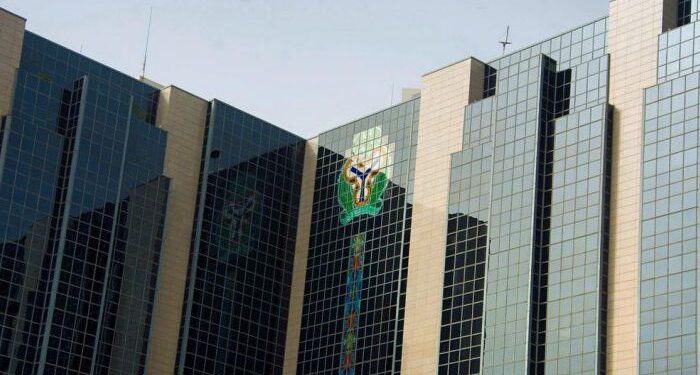Nigeria’s foreign exchange market has witnessed a steady improvement in liquidity and inflows, driven largely by the Central Bank of Nigeria’s (CBN) sustained reform measures, despite a downturn in global oil prices. The local currency, the naira, has shown signs of resilience in recent weeks as confidence strengthens among investors and exporters.
Market reports indicated that foreign exchange inflows have increased across official channels, buoyed by the CBN’s efforts to enhance transparency, unify exchange rates, and clear outstanding backlogs owed to foreign investors and airlines. These reforms have restored trust and repositioned Nigeria as an attractive investment destination amid volatile global commodity markets.

The global oil market, which traditionally accounts for the majority of Nigeria’s foreign reserves, has faced price fluctuations, with crude oil recently trading around $83 per barrel, down from over $90 earlier in the quarter. However, Nigeria’s forex earnings have remained stable due to non-oil export inflows, diaspora remittances, and renewed foreign portfolio investment (FPI) in government securities.
The CBN Governor, Dr. Olayemi Cardoso, said the Bank’s policy direction is anchored on creating a transparent and market-driven exchange rate framework. According to him, the central bank’s strategic interventions are aimed at boosting investor confidence and attracting sustainable inflows into the economy.
“Our focus has been on restoring credibility to the foreign exchange market through clear, consistent, and transparent policies,” Cardoso said in a recent statement. “We are beginning to see the results as more investors return and foreign exchange supply improves.”
He added that the CBN has successfully cleared a substantial portion of forex backlogs, including verified obligations owed to foreign airlines, manufacturers, and other sectors. This move, analysts believe, has helped reduce uncertainty and improve investor perception of Nigeria’s economic direction.
In recent months, the CBN has introduced several measures to strengthen the forex market, including the reactivation of Bureau De Change (BDC) operations, digital monitoring of forex transactions, and collaboration with security agencies to combat speculative trading and illegal hoarding.
These reforms, coupled with improved coordination between fiscal and monetary authorities, have begun to yield results. The naira, which had faced severe depreciation earlier in the year, appreciated to around ₦1,420/$1 in the official market as supply pressures eased.
Experts say the improved forex liquidity is a sign that Nigeria’s non-oil sectors are gradually stepping up to fill the gap created by fluctuating oil revenues. Exporters in agriculture, manufacturing, and services have reported stronger performance, while remittance inflows from the Nigerian diaspora remain a crucial stabilising factor.
Economists have commended the CBN’s policy consistency, noting that it has brought much-needed clarity to investors who previously faced uncertainty due to multiple exchange rate regimes. Dr. Bismarck Rewane, CEO of Financial Derivatives Company, said the reforms have improved transparency and enhanced Nigeria’s credibility in the eyes of global financial institutions.
“The CBN’s reforms are restoring market confidence. The unification of exchange rates, coupled with efforts to clear backlogs, has sent a strong signal that Nigeria is serious about reforming its monetary framework,” Rewane said.
Meanwhile, the Federal Government’s fiscal policies have complemented the CBN’s efforts by promoting non-oil exports and local production. The Coordinating Minister of the Economy, Wale Edun, said the government’s priority is to attract foreign direct investment (FDI) through improved ease of doing business and policy stability.
Edun explained that ongoing collaborations with international financial institutions, including the World Bank and Afreximbank, have also supported liquidity in the foreign exchange market. “We are ensuring a stable environment that encourages investors to bring in capital and support Nigeria’s growth,” he stated.
The oil price slump has raised concerns among commodity-dependent economies, but analysts argue that Nigeria’s diversification efforts and monetary reforms are cushioning the impact. The focus on expanding the country’s non-oil export base—especially in sectors like agriculture, technology, and solid minerals—has started to yield tangible benefits.
Market data shows that foreign portfolio investments into Nigerian Treasury Bills and government bonds have increased, indicating renewed confidence in the country’s economic outlook. Additionally, several multinational corporations have announced plans to expand operations in Nigeria following improved access to foreign exchange.
However, some analysts warn that sustaining these gains will require consistent policy implementation and continued collaboration between the CBN and fiscal authorities. They also emphasised the importance of addressing inflation, currently above 27%, and ensuring macroeconomic stability to maintain investor confidence.
The CBN governor reiterated that the Bank remains committed to sustaining reforms that will ensure exchange rate stability and support overall economic recovery. “Our goal is to create a transparent, predictable, and liquid forex market that supports Nigeria’s long-term growth and global competitiveness,” Cardoso said.
As oil prices continue to fluctuate, Nigeria’s ability to sustain forex inflows through reforms and diversification may determine the strength of its economic recovery. For now, the CBN’s measures appear to be paying off, with the naira regaining momentum and investors showing renewed optimism about the nation’s financial landscape.
Support InfoStride News' Credible Journalism: Only credible journalism can guarantee a fair, accountable and transparent society, including democracy and government. It involves a lot of efforts and money. We need your support. Click here to Donate
